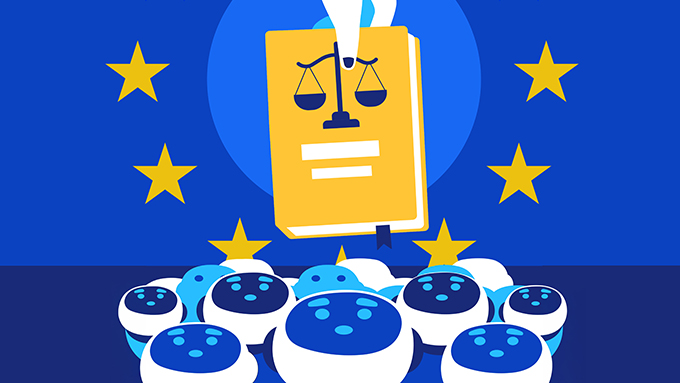Internet Actors in Law No. 5651
Introduction
With the increasing use and development of the internet in society, it has become significant to determine the responsible subjects for online publications. Indeed, many types of offenses can be committed through these publications on the internet, and they may also constitute an attack on one’s personal rights.
The most comprehensive legislation on the internet is Law No. 5651 on the Regulation of Publications on the Internet and Combating Crimes Committed by Means of Such Publication [i] (“Law No 5651”), namely, “Internet Law” which was made in 2007.
In this article, the following subjects and their obligations under Law No. 5651 will be discussed:
- Content provider
- Hosting provider
- Access provider
- Public use provider
In addition to Law No. 5651, the obligations of the mentioned internet actors are regulated under the Regulation on the Procedures and Principles on Issuance of the Certificate of Activity to the Access and Hosting Providers by the Telecommunications Authority (“Regulation dated 24.10.2007”), and the Regulation on the Procedures and Principles on Publications on the Internet.
Content Provider
Content provider refers to real or legal person creating, modifying, and providing all kinds of information or data to the users through the internet environment. In other words, it is a person who contributes to the content of an internet website by several methods, such as uploading information or documents.[ii] In this respect, the bloggers, persons who comment or upload photos / documents on social media platforms, such as Facebook and Twitter, are content providers.
Content providers are responsible for the content posted on the internet, but are not responsible for the content of someone else to which they provide a link. However, they become responsible according to the general provisions, if it is clearly understood from the form of presentation that it embraces the content they provide a link to, and which intends the user to access that content. (Article 4 of Law No. 5651)
In addition, content, hosting and access providers have an obligation to inform. In this context, they are obliged to keep certain introductory information in their own internet environment, under the contact section, in a correct, complete, and up-to-date manner, so that the users may access it directly from the home pages; otherwise, they will face administrative fines. (Article 3 of Law No. 5651)
Hosting Provider
A hosting provider refers to real or legal persons who provide or operate systems containing services and content. Hosting providers perform their activities by obtaining a “hosting provider certificate of activity.”
Hosting providers provide hosting services for information, documents, or files placed on the internet network.[iii] For example, the www.facebook.com website provides a location for the contents of the content creator. In order for this site to operate, it must be in another virtual environment. The company hosting the Facebook website is the hosting provider.[iv] In addition, websites, where content providers publish their content, are also hosting providers. To illustrate, users who share posts on Facebook or Twitter are content providers, and the platforms mentioned in terms of this content are considered as hosting providers. However, it should be noted that if these platforms share their own content, they are also considered as content providers.
Pursuant to Article 5 of Law No. 5651, a hosting provider is not obliged to check the content it provides hosting service for, nor to investigate whether any illegal activity is involved. However, it is obliged to remove the publication upon being informed of illegal content according to Articles 8 and 9 of Law No. 5651.
In addition to the aforementioned obligation to inform under Article 3, hosting providers are required to retain traffic data in relation to their hosting activities for six months in accordance with the Regulation dated 24.10.2007.
Access Provider
Access provider refers to real or legal persons who provide their users with access to the internet environment. In other words, we need to receive access service from service providers, such as TTNet and Superonline, and those who provide this service are considered as access providers.[v]
To be an access provider, one needs to be an operator that refers to a corporation conducting telecommunication services and/or operating a telecommunications infrastructure in accordance with a service contract, concession agreement concluded with the Institution for Information Technologies and Communication Authority (Formerly the Telecommunications Authority and hereinafter referred to as the “Authority”), and/or a telecommunications license or general authorization received from the Institution. (Regulation dated 24.10.2007, Article 3/1-k)
Access providers also serve by obtaining a certificate of activity and must be members of the Access Providers Association. In addition, as stated above, they have information obligations under Article 3 of Law No. 5651.
Obligations of the access providers are regulated in Article 6 of Law No. 5651. Pursuant to the provision, access providers are obliged to block access upon being informed of illegal content posted by any of its users. It should be noted that, however an access provider is not obliged to check whether the contents accessed through it are illegal and require responsibility. This is because it is only an intermediary between users and the internet.
In addition, access providers are obliged to retain the traffic information for one year as specified in the Regulation dated 24.10.2007, and to ensure the accuracy, integrity, and confidentiality of this information. Another obligation of access providers is to take measures to prevent alternative access routes regarding the publications whose access are decided to be blocked.
Lastly, access providers are obliged to notify the Authority, its content providers, and customers at least three months before the end of its activity, and to deliver the traffic information records to the Authority in accordance with the principles and procedures specified in the Regulation. If these obligations are not adhered to, the access provider will face administrative fines.
Public Use Provider
Public use providers are those who provide individuals the possibility of using the internet in a certain location and for a certain period of time. In this sense, workplaces and schools are deemed as public use providers. Public use provider operating commercially refers to real and legal person who provides internet public use services for a certain fee in public places, and who enables playing of computer games that increase knowledge and skill or intelligence development. In practice, the places known as “internet cafes” are public use provider operating commercially.
In line with Article 7 of Law No. 5651, public use providers operating commercially are obliged to obtain a permit by applying to the administrative offices after obtaining a workplace opening and working license. Regardless of whether it is operating commercially or not, all public use providers are obliged to take relevant measures to prevent access to crime content, and to retain access records concerning the use. Public use providers operating commercially are obliged to take measures to protect families and children, preventing crime and detecting criminals, as specified in the relevant regulation. The obligations and responsibilities of public use providers are regulated in detail in the Regulation on Public Use Providers.
Conclusion
Considering the fact that the role of internet in our lives has been increasing exponentially in the modern world, liability on the contents in the internet environment have become critical. Although there are legal regulations imposed on internet actors, their definitions and scope of responsibilities cause confusion time to time. For this reason, it is important to be familiar with the internet actors, namely access providers, hosting providers, content providers and public use providers.
[i] Law No. 5651 on the Regulation of Publications on the Internet and Combating Crimes Committed by Means of Such Publication, OG. No. 26530, 23.05.2007.
[ii] Bozbel, Savaş: Fikir ve Sanat Eserleri Hukuku, December, 2012, pp. 484.
[iii] Bozbel, pp. 485.
[iv] Taşkın, Şaban Cankat: İnternete Erişim Yasakları ve Hukuka Aykırılıklar, 2015, pp. 21.
[v] Bozbel, pp. 484.
All rights of this article are reserved. This article may not be used, reproduced, copied, published, distributed, or otherwise disseminated without quotation or Erdem & Erdem Law Firm's written consent. Any content created without citing the resource or Erdem & Erdem Law Firm’s written consent is regularly tracked, and legal action will be taken in case of violation.
Other Contents

The European Data Protection Board (“EDPB”) issued Opinion 28/2024 addressing key data protection concerns related to the processing of personal data in the context of artificial intelligence (“AI”) models. This Opinion was prepared in response to the Irish Supervisory Authority’s request under Article 64(2) GDPR...

As technology advances, artificial intelligence (“AI”) is steadily making its way into dispute resolution, promising enhanced efficiency. Practitioners are carefully weighing its capabilities against its limitations...

The Framework Convention on Artificial Intelligence (Convention) is an international treaty proposed by the Council of Europe that was recently opened for signature . This is the first legally binding international framework regulating the entire lifecycle of Artificial Intelligence (AI) systems. The Convention ensures...

The "Brussels Effect" refers to the phenomenon where European Union (“EU”) regulations influence or set standards globally. Since the EU is a significant market, global companies often find it practical and economically beneficial to adopt EU standards across all their operations rather than comply with multiple...


With its decision dated 11.10.2023 and numbered 2020/76 E., 2023/172 K. published in the Official Gazette dated 10 January 2024 and numbered 32425 ("Decision"), the Constitutional Court ("Constitutional Court") evaluated the requests for the annulment of certain articles of the Law No. 7253 on the...

The Information Technologies and Communications Board adopted the Procedures and Principles for Social Network Providers (“Procedures and Principles”) with its decision dated 28.03.2023 and numbered 2023/DK-ID/119. The said decision was published in the Official Gazette dated 01.04.2023, and entered into...

The first “Artificial Intelligence Act” of all time, which includes rules and regulations that directly affect tools such as ChatGPT, Bard and Midjourney adopted by the European Parliament with a majority of votes. Thus, the European Parliament has officially taken the steps of a regulation that could be a turning point for...

ChatGPT, a large language model (LLM) developed by OpenAI, is an artificial intelligence (AI) system based on deep learning techniques and neural networks for natural language processing. ChatGPT can process and generate human-like text, chat, analyse and answer follow-up questions, and acknowledge errors...

